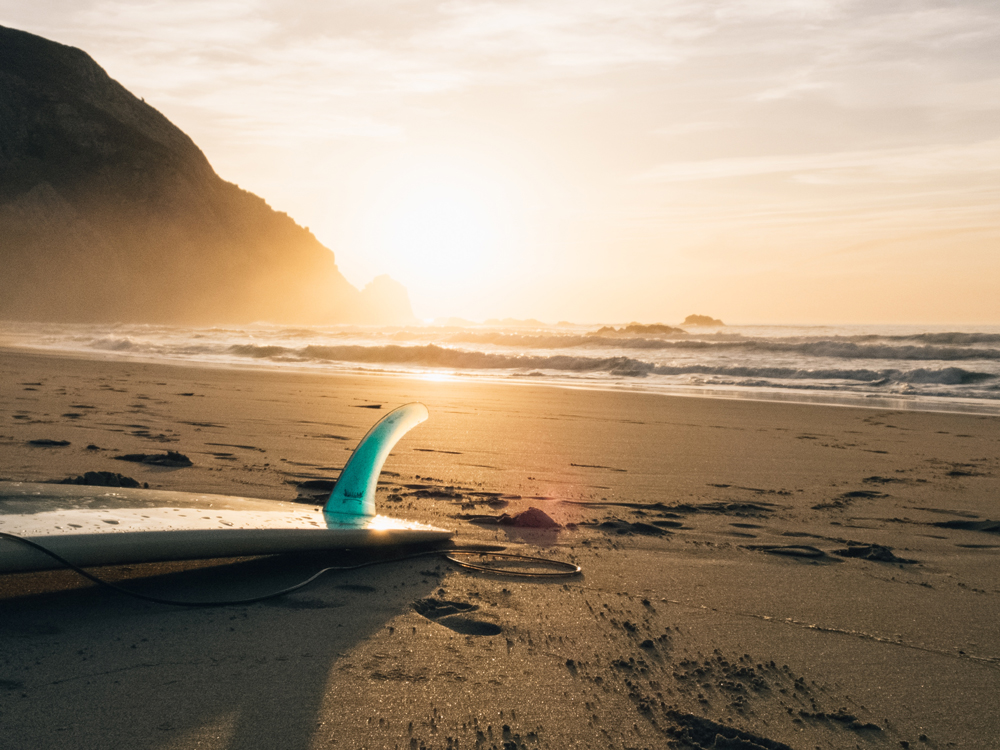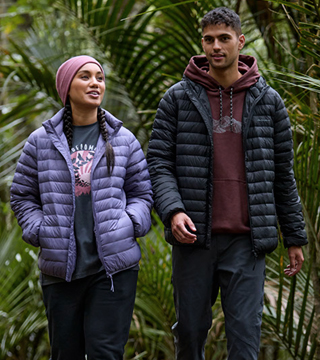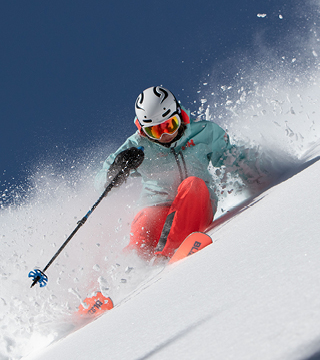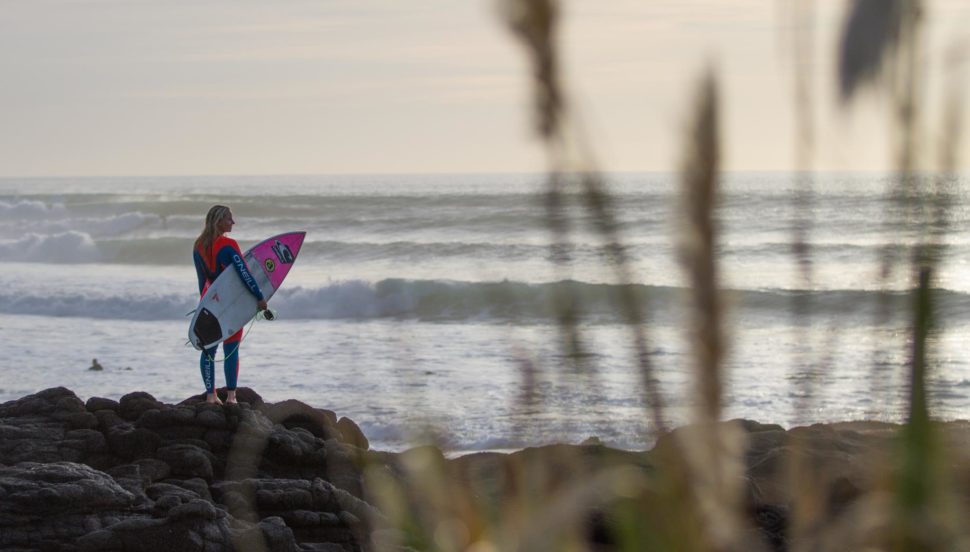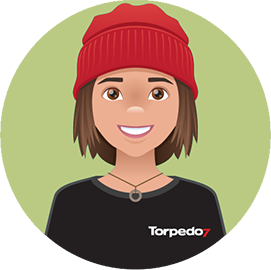We asked Torpedo7 athlete Britt Kindred to share her knowledge on the importance of choosing the right board for your skills when learning to surf. Having represented New Zealand on the world stage, we reckon she’s pretty qualified to tell you why buying a board for your ability rather than what’s ‘cool’ can mean the difference between being a punter in the whitewash and tearing turns at your local break…
Surfing can be a difficult sport/skill to learn and your progression can be largely affected by the equipment you use which is something I know from experience. Being from a surfing family I was lucky to have a range of old surfboards in the garage of different lengths, widths, volumes and shape to help me progress through my surfing until I was good enough to get my very own custom design surfboard to suit my needs. To most of you who are learning to surf and don’t come from a surfing background it can be very hard to know what surfboard is the best for you and you may have been guilty of buying one that looks “pretty or cool” rather then one that will benefit your surfing.
Firstly if you want to surf don’t ride what the pros you see on tv ride, you have to start at the bottom if you want to learn to surf. Many beginners and even intermediate surfers make the mistake of thinking that if a person surfs good on a certain board that you can surf the same as them. Volume in your first surfboard is very important as that is what helps the board keep you afloat, the less advanced surfer you are the more volume you will want to make your experience better. It is common that if you’re struggling with surfing your main issue is usually that your board is too small for you. This affects your paddling speed meaning you miss waves even when you’re paddling as hard as you can, you struggle to gain speed and fluidity making it rather frustrating for you as a surfer.
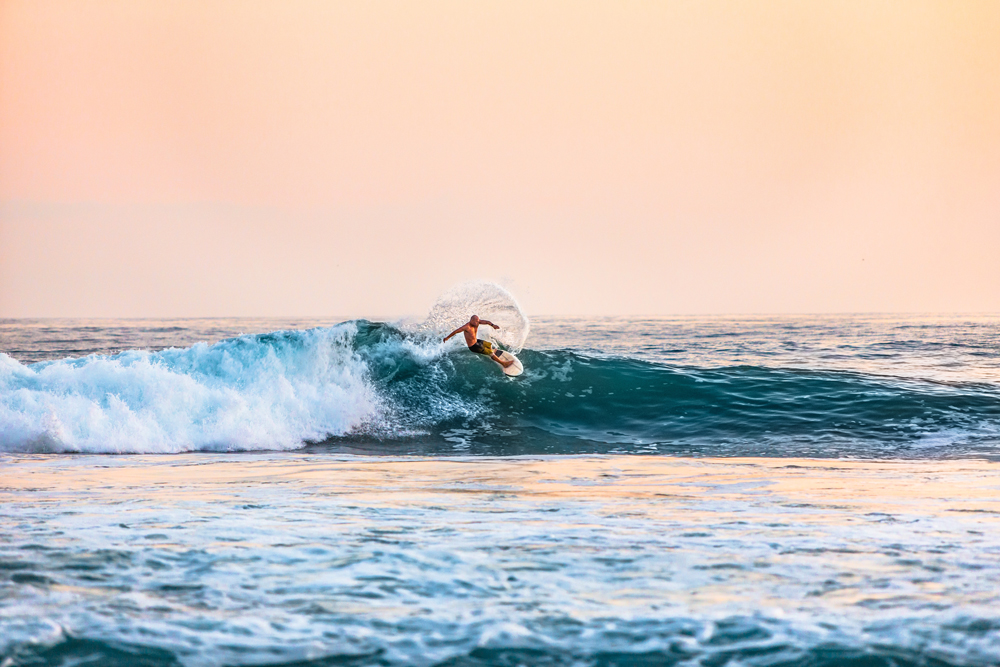
Long boards are the ultimate boards for beginners, I learnt to surf on a 9ft 10 inch surfboard. Longboards may be much harder to carry but the are wide and stable and very easy to catch waves due to the large amounts of volume in the boards. A board such as the Torpedo7 9ft 2 Malibu Longboard with 63 litres is a great place to start if you are really struggling with your balance, speed and flow.
Once you move into more of an intermediate surfer and you are comfortable in the water you will find it easier to reduce the size of your board to make it easier to experience and begin to try and surf like the pros you see on TV. Although you think you have nailed surfing on your longboard it is important you don’t drop to small initially – you would be looking at boards such as the Torpedo7 Mini Mal in a 7ft 6 or 7ft 2. This is a big size reduction but is an important step in progressing your surfing. Fish shaped boards are also a direction you can move into if you are an athletic and lighter person who wants to begin performing manoeuvres. Short boards above the 6ft range and fish shaped boards such as the Torpedo7 PU 6ft 2 Fish are ideal at this stage. If you prefer smaller waves and longboarding is your thing then it may benefit you to move into to a more performance style longboard for nose rides and more advanced longboarding techniques.
While what I have outlined above is a set general of rules for choosing a board for you, your weight, fitness, body muscle memory, time, and the waves you ride also play parts in what is the best board is for you. If you are below 80kgs you will find it alot easier to ride shorter boards than someone who is over 80kgs. The waves you ride will also affect the recommended board for you. If you’re riding waves 2ft and under and mushy waves then a board with large volume will be the best as these waves have a lot less power than larger waves hence the need for more floatation.
Lastly surfing involves a large amount of fitness and skills which takes a long time to get the hang of. If you have done sports such as skating, snowboarding, wakeboarding you should find it much easier to get the hang of surfing and you shouldn’t struggle with hopping on a fish or a mini mal as your body should have similar muscle memory for the type of movements you do. If you have never done any of the sports above it may take you a longer time to get the hang of it so I would recommend starting on a long board. If you want to sneak a head above the rest practice your get ups on land over and over again (20-50 times a day) to help build your muscles to get use to the movements and you’ll be good to go once you hit the waves!
